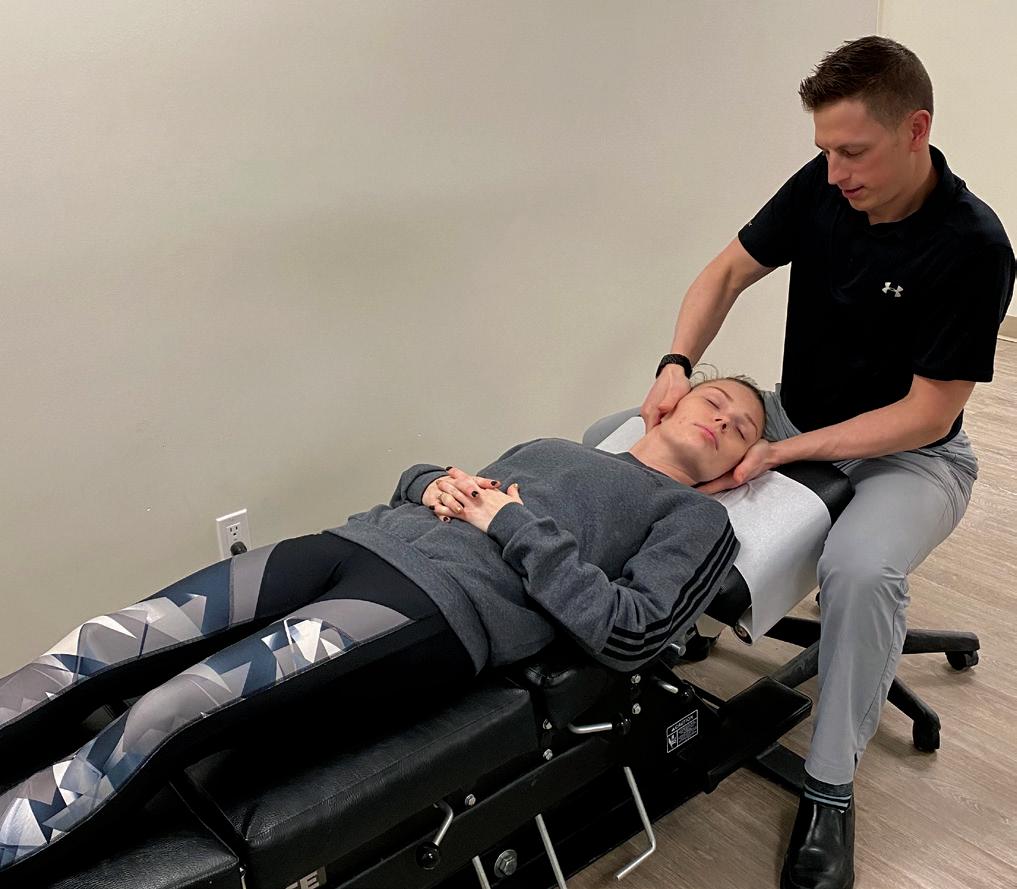LEFT: Dr. Sharon Gurm.
What are the benefits of an integrative approach?
HEALTH AND WELLNESS
Cancer care with a difference DR. SHARON GURM SHARES WHAT AN INTEGRATIVE CARE APPROACH LOOKS LIKE
T
oday, patients have many different options when it comes to seeking integrative care. Dr. Sharon Gurm, BSc, ND, FABNO, a naturopathic physician (oncology) and founder and medical director of Port Moody Health – Integrative Medicine and Cancer Care (portmoodyhealth. com), helps us to understand how taking a holistic, integrative approach can have an impact on cancer.
ETC: How do you describe an integrative approach to health care compared to the conventional approach? SG: The conventional approach to health care follows a diseasefocused model primarily with pharmaceutical management. Integrative health care blends naturopathic medicine with conventional medicine, defining a new standard of care. Integrative health care considers many aspects of disease, health and overall wellbeing. It follows a patientfocused model of health care that involves therapeutic interventions — including diet, nutrition, lifestyle, mindbody medicine, use of natural health products, physical therapy and counselling — aimed at prevention, disease treatment and management. While this may include pharmaceuticals where appropriate, the backbone of integrative care is a functional, whole-person approach.
How can the two approaches be combined? Integrative medicine is not a replacement to conventional care; rather it elevates conventional care to a higher standard. Integrative care “integrates” conventional care with a combination of evidence-supported therapeutic strategies and often requires an “integration” of several providers as part of the health care team for the individual. It is a modern approach to health care ideally involving collaboration between family physicians, specialists and naturopathic physicians, along with allied practitioners, such as nutritionists, physiotherapists and counsellors.
42 EXPERIENCE TRI-CITIES
| SPRING 2020
The backbone of integrative care is patient empowerment and education. The patient becomes an active participant in their care. Naturopathic physicians and other private health care physicians have the flexibility of devoting longer consults with their patients, providing the space and time for explanation, questions, discussion of various therapeutic options and shared decision-making for treatment. When patients understand the factors impacting their health and why, in addition to learning what can be done to improve their health, they are motivated to make change and more likely to commit to a plan aimed at achieving the end goal.
When is the best time to seek integrative care? Prevention is much easier and preferable than treating disease! The best time to seek integrative care is before the disease manifests. Whether you are extremely healthy, starting to experience a decline in your health, or are dealing with a chronic disease such as cancer, cardiovascular disease, autoimmune disease, diabetes or chronic pain, you need to take accountability for your health and seek out appropriate care. Even if you are healthy now, the reality is that many serious illnesses are “silent” until they progress to the point that symptoms become evident — cancer and cardiovascular disease are two classic examples of silent diseases. In my practice, I see a lot of young, healthy individuals diagnosed with cancer, even without a strong family history or major risk factors for cancer. The reality is we are never immune from developing cancer, no matter how “healthy” we may be. Making healthy choices for diet and lifestyle will reduce the risk and lead to better treatment-related outcomes.
What should you look for when selecting a naturopathic physician for cancer treatment? The Oncology Association of Naturopathic Physicians is a fantastic resource of naturopathic physicians offering oncologic care. Some naturopathic physicians have obtained further training in naturopathic oncology and completed a fellowship with the American Board of Naturopathic Oncology (FABNO). FABNO naturopathic physicians follow an integrative, collaborative, patient-focused approach to cancer care, with the goals of improving quality of life during cancer treatments and beyond, reducing the side effects to cancer treatments, improving outcomes from cancer treatment, preventing recurrence, and maintaining or improving overall health of the patient. n
WWW.EXPERIENCETRICITIES.CA












